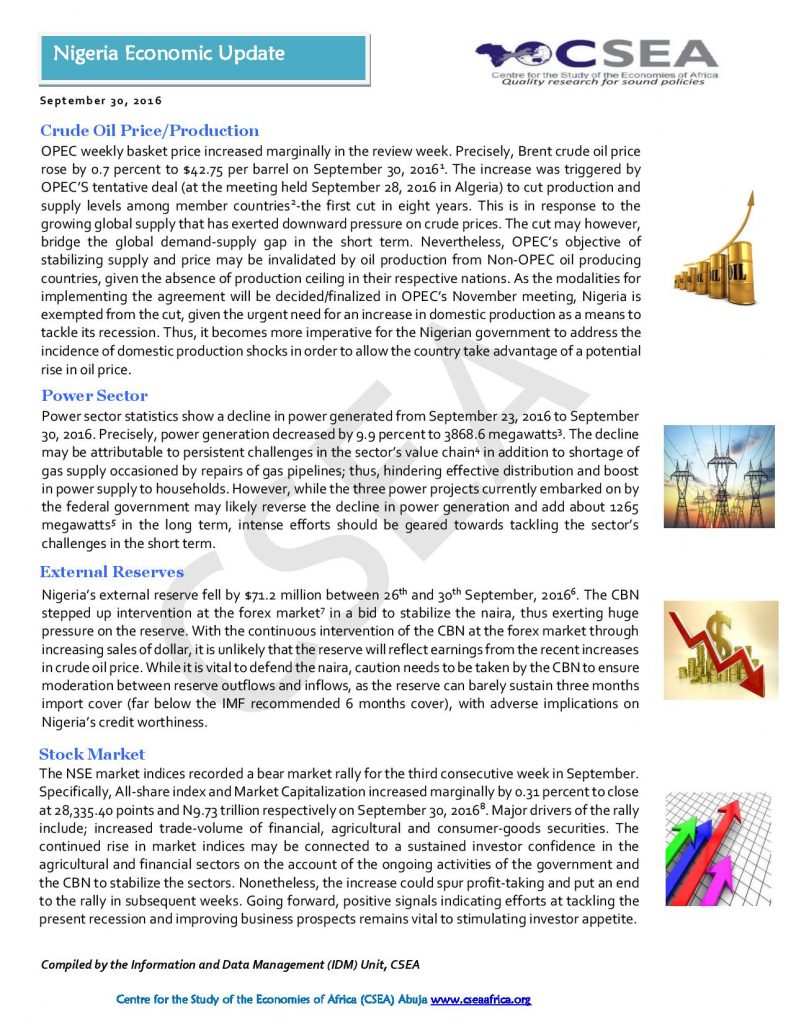Macroeconomic Report & Economic Updates

October 6, 2016
Nigeria Economic Update (Issue 42)
The
NSE market indices recorded a bear market rally for the third consecutive week
in September. Specifically, All-share index and Market Capitalization increased
marginally by 0.31 percent to close at 28,335.40 points and N9.73 trillion
respectively on September 30, 2016. Major drivers of the rally include;
increased trade-volume of financial, agricultural and consumer-goods
securities. The continued rise in market indices may be connected to a
sustained investor confidence in the agricultural and financial sectors on the
account of the ongoing activities of the government and the CBN to stabilize
the sectors.
Related
Net Domestic Credit And Currency In Circulation (CIC):
Net Domestic Credit: Rising net credit to government and private sector have driven the upward trend in NDC, especially post-2008. In 2016Q1, NDC grew largely on the account of the rise in banking sec
